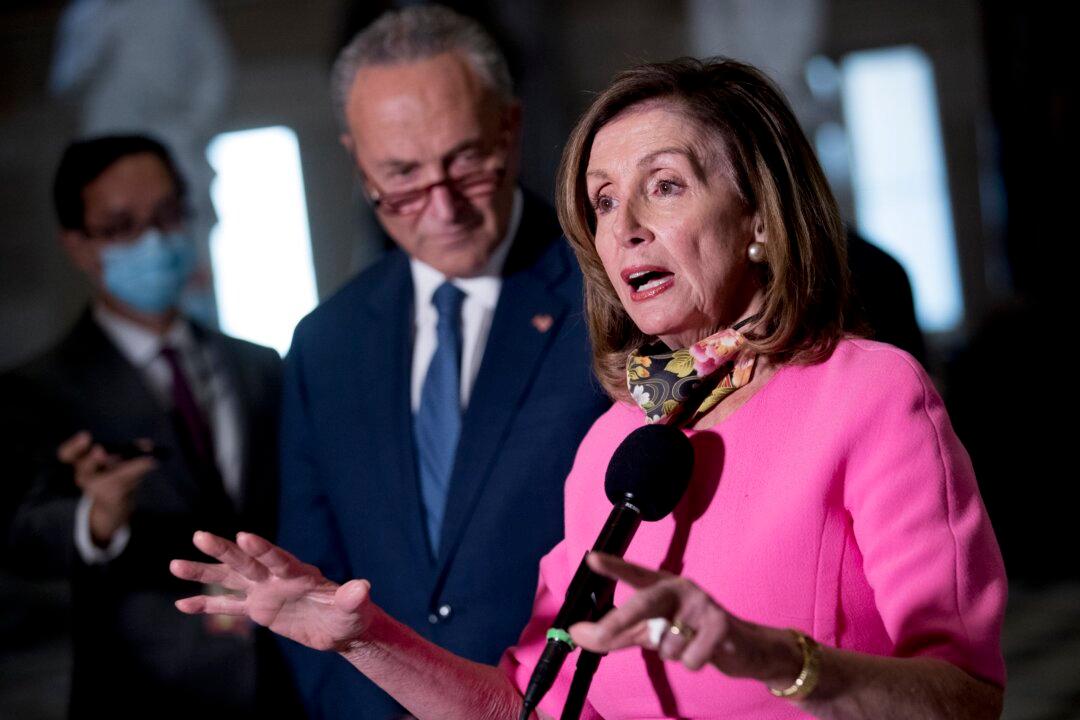President Donald Trump cast doubt on the prospects of White House and congressional negotiators sealing a bipartisan deal on a stimulus package, accusing top Democrats of reluctance to compromise on aid to states and cities, which the president and his allies have often referred to as “bailouts.”
“Just don’t see any way Nancy Pelosi and Cryin’ Chuck Schumer will be willing to do what is right for our great American workers, or our wonderful USA itself, on Stimulus,” the president wrote on Twitter. “Their primary focus is BAILING OUT poorly run (and high crime) Democrat cities and states.”





